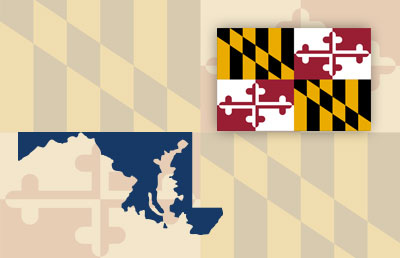Maryland Adopts Various Changes Affecting Mortgage Lending

MARYLAND ADOPTS AMENDMENTS CHANGING SURETY BOND LIABILITY
Effective June 1, 2017, Maryland passed an act that will change the mechanics of surety bonds filed in tandem with applications to become a debt collection licensee in the state of Maryland. Specifically, they amend the list of obligees and further detail/delineate surety liability limitations.
Previously, a surety bond acted as a legal guarantee between the principal and the individual obligee, providing that, if the conditions were not fulfilled by the principal, the surety company would pay the obligee in accordance with the guarantee. With the amendments added to the act, the State Collection Agency Licensing Board (the board) is now to be one of the named obligees, acting on behalf and for the benefit of the state.
The amendments also clear up the impact bond modifications have on the relationship between the bond and its surety liability. The amendment dictates that the liability of the surety is: (1) continuous; (2) non-aggregating regardless of any bond renewals, replacements, continuance or modifications; and (3) will be considered a continuous obligation regardless of changes in the penal sum. Furthermore, the surety liability is not impacted by the bankruptcy of the licensee or an act of bad faith – such as misrepresentation – by the licensee.
For a full reading of the amendments, you may follow this link: http://mgaleg.maryland.gov/2017RS/bills/sb/sb0924t.pdf
MARYLAND ADOPTS AMENDMENTS TO THE MARYLAND PERSONAL INFORMATION PROTECTION ACT
Effective January 1, 2018, Maryland amended certain provisions of the Maryland Personal Information Protection Act. Specifically, the amendments changed what information is covered and the steps a compromised business must take post-discovery of a breach.
The data covered under the Act includes all data in electronic or optical form. Captured data must be protected from breaches. Therefore, under the amendments, the data must be encrypted and rendered indecipherable without the cryptographic key. Protected data includes personal information such as the: (1) individual’s name; (2) individual’s personal identification numbers such as his or her tax identification number (TIN); (3) individual’s address; and (4) individual’s email. However, not all data falls under the protection of the Act. The Act specifically omits data that is publicly available or has had its protection privileges explicitly waived by the individual for disclosure to third parties.
Should there be a breach, an investigation must ensue. The breached party must determine whether there is a “likelihood that personal information of the individual has been or will be misused as a result of the breach.” At the conclusion of the aforementioned investigation, the business should notify the individual of the breach – if it has found the likelihood of the information compromised to meet the standard – as soon as possible, but at the latest 45 days from the conclusion of the investigation. The only exception to this is if there is a police investigation ongoing, in which case the breached party must inform the individual within 30 days at the conclusion of the police investigation.
For a full reading of the amendments, you may follow this link: http://mgaleg.maryland.gov/2017RS/chapters_noln/Ch_518_hb0974E.pdf
MARYLAND ADOPTS AMENDMENTS AFFECTING MORTGAGES AND DEEDS OF TRUST RECORDING
Effective October, 1 2017, Maryland adopted several amendments affecting mortgages and deeds of trust recording prerequisites. Most of these changes are minor textually but are important as they may have broad impact.
First, a deed other than a mortgage, deeds of trust and an assignment/release of a mortgage or deed of trust may not be recorded unless an attorney or a party named in the instrument certifies it. The certification must state that the certifying party is also the party responsible for the preparation of the instrument. Barring this certification, a recordation of the instrument may not occur.
Second, the amendments define limitations as to which individual constitutes an “attorney.” Previously, any attorney at law was sufficient to meet this standard. However, after the changes, an attorney at law must be admitted to the Maryland Bar in order to be able to be considered a proper certifying party.
Last, mortgages, deeds of trusts, and assignments/releases of mortgages and deeds of trusts do not require a certification. So long as the instruments were prepared by an attorney or a party mentioned within the instrument, the document may be recorded without any certification requirements.
For a full reading of the amendments, you may follow this link: http://mgaleg.maryland.gov/2017RS/chapters_noln/Ch_520_hb0595T.pdf
MARYLAND ADOPTS THE UNIFORM ELECTRONIC LEGAL MATERIALS ACT
Effective October 1, 2017, Maryland enacted the Maryland Uniform Electronic Legal Materials Act. This Act essentially makes uniform electronic documentation of certain state legal documents and databases. For an exhaustive list of what documents fall within the definition of “legal materials” under the Act, please use the link at the end of this article. The following are the most important changes brought by the adoption of the Act.
First, determining whether a legal material is published solely electronically or in two or more mediums is pivotal. A legal material that is published solely electronically is deemed official and must be authenticated. Authentication requires the publisher to provide a method for the reader to determine that the current version he or she is accessing is unaltered.
Second, a legal material that is authenticated is presumed to be accurate. However, a party may contest the authenticity of the material by a “preponderance of the evidence” (this is legal language for more likely than not, or 51% likelihood).
Last, should a legal material be deemed official, the publisher must take steps to secure and preserve the material; this includes creating backups, ensuring integrity of the record and delivering a copy to the state archives.
For a full reading of the Act, you may follow this link:
http://mgaleg.maryland.gov/2017RS/chapters_noln/Ch_553_hb0165T.pdf

Comments are closed.